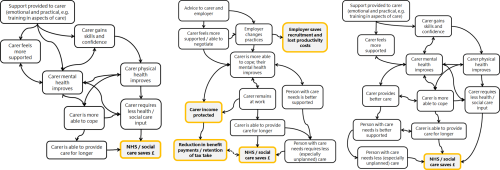 Elective care | Inequalities | Policy
Elective care | Inequalities | Policy
What are the ethical challenges in addressing inequities?
Produced by Angie Hobbs - the world’s first Professor in the Public Understanding of Philosophy – this paper examines the ethical questions raised by our report outlining strategies for reducing inequity.
 Service configuration | Service improvement | Integrated Care
Service configuration | Service improvement | Integrated Care
Scoping study: the economics of caring
There is a clear moral case for supporting unpaid carers. They play an essential role in the lives of the people they care for; they often do so at a cost to their own wellbeing. But what is the economic case for supporting carers? And to what extent does the evidence base support this case?…